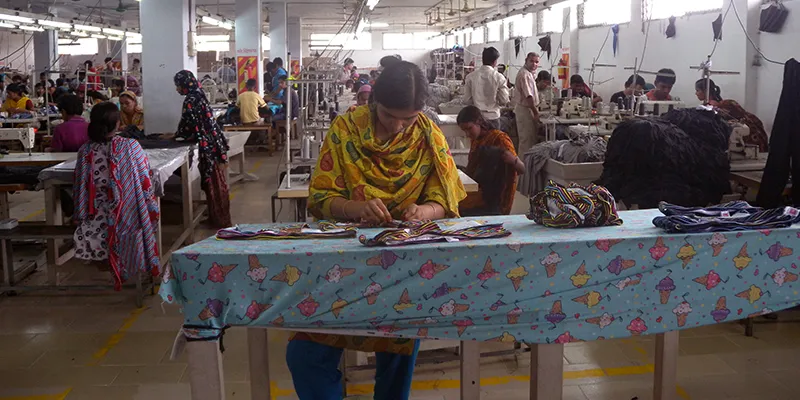[Survivor Series] If I can move towards a healthy life, then so can you
This week in ‘Survivor Series’, we share the story of Ananda Jothi, who faced great difficulties in managing her work at the factory and at home as she was diagnosed with severe anaemia.
My name is Ananda Jothi, and I hail from Kanthasarapatty village in Karur district, Tamil Nadu. For the last five years, I have been working as a tailor in one of the leading garment factories in Karur to elevate my family’s poor financial condition.
I studied up to middle school, but I could not continue with it. I soon got married, and now, I live with my husband, who works as a labourer (coolie) at the railway station, and our two children.
I have had difficulties in managing my household chores along with my factory work, and I could not care for my health.

Representational image
Even when I am sick, I try and manage my work and family without any rest. I often feel anxious, dull, and dizzy thinking about how I can take care of both together.
For this reason, I often took leaves for five to six days every month during my menstrual cycle, and I kept failing to achieve my production target within the stipulated time.
Moreover, it affected my emotional well-being since I could not perform as per my supervisor's expectations. My individual work as a tailor has a direct effect on the overall production of the segment.
I was diagnosed with severe anaemia during a health screening camp conducted by Bengaluru-based NGO Swasti in partnership with my factory. My haemoglobin level was at 4.8 grams/100 ml, and the doctor advised me to take iron folic supplements and syrups.
Since 2003, Swasti’s Invest for Wellness (i4We) programme has been contributing to the health and well-being of over 60,000 workers across India, Bangladesh, and Lesotho, of whom over 60 percent of workers impacted are women.
Nurses at the factory, Swasti, and the counsellor supported me with periodical health and nutrition counselling. They reinforced the importance of a nutritious diet in treating anaemia.
I was not aware of a healthy diet plan earlier. The nurses and the entire health team provided support in preparing a meal plan for myself and my family, which included leafy vegetables, dates, cabbage, beans, etc. They also referred me to the nearest PHC to access further treatment.
For over three months, the Swasti team, along with the factory and PHC nurses, regularly followed up with me until my haemoglobin levels improved. After rescreening, my haemoglobin level was at 9.8 grams/100 ml. I adhered to the treatment and lifestyle modifications, and hence, was able to improve my haemoglobin levels slowly.
Now I am quite confident about managing my and my family’s health. I don’t take leaves from work anymore. Moreover, the factory supervisor appreciated me for achieving my daily production targets.
Even my coworkers observed changes in my behaviour and appreciated me. I was able to do this because of the knowledge and information I got on improving my health and the importance of having food rich in iron, Vitamin B12, etc.
On behalf of my family, I want to express my gratitude to the factory management and the Swasti team for their continuous support and care for my wellness.
Like me, many women are working in factories who would have such hidden health conditions. Initially, I struggled, but now, I am moving towards a healthy life.
If I can, then so can you.
Edited by Suman Singh

![[Survivor Series] If I can move towards a healthy life, then so can you](https://images.yourstory.com/cs/5/79900dd0d91311e8a16045a90309d734/garment-1653304970257.jpg?mode=crop&crop=faces&ar=2%3A1&format=auto&w=1920&q=75)
![[Survivor Series] I am educating my children so they don't become bonded labourers](https://images.yourstory.com/cs/5/f5a7f3304b1211e9b6645b8ae897d03e/survivor1-1609134005148.png?fm=png&auto=format&h=100&w=100&crop=entropy&fit=crop)




